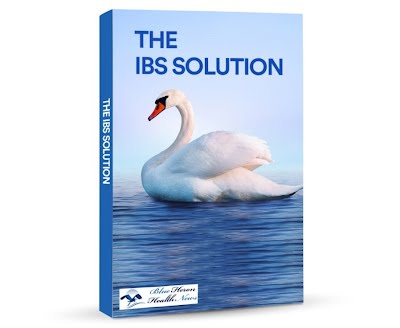
The IBS Program™ / The IBS Solution™ By Julissa Clay The IBS program comes in the format of a step-by-step program that can be purchased by anyone curious. The product is designed for everyone who wants to control their IBS symptoms and enjoy a pain-free life. One of the most impressive aspects of this program is that you may complete the workouts. You may do the workouts during the lunch hour, on a flight, or even at the house, and the great news is that you don’t need special equipment to complete them.
What are the common symptoms of IBS?
Irritable Bowel Syndrome (IBS) is characterized by a variety of gastrointestinal symptoms that can vary significantly from person to person. The symptoms often fluctuate in intensity and frequency, and they can be influenced by factors such as diet, stress, and hormonal changes. Here’s an in-depth look at the common symptoms of IBS:
1. Abdominal Pain or Cramping
Abdominal pain or cramping is one of the hallmark symptoms of IBS. This pain can be:
- Location: It may occur anywhere in the abdomen but is commonly felt in the lower abdomen.
- Nature: The pain can vary from mild to severe and may be described as cramping, sharp, dull, or aching.
- Duration and Timing: It can be persistent or intermittent, often improving after a bowel movement. The pain may also be linked to specific triggers, such as eating certain foods or experiencing stress.
2. Changes in Bowel Habits
Changes in bowel habits are another key feature of IBS. These changes can manifest as:
- Diarrhea (IBS-D): Some people experience frequent, loose, or watery stools. This may be accompanied by a sudden, urgent need to have a bowel movement, often referred to as urgency.
- Constipation (IBS-C): Others may experience infrequent, hard, or lumpy stools. Constipation can cause straining during bowel movements and a feeling of incomplete evacuation.
- Alternating Diarrhea and Constipation (IBS-M): Some individuals experience alternating episodes of diarrhea and constipation. This mixed type can be particularly challenging to manage.
- Normal Bowel Movements with Discomfort (IBS-U): Some people may have normal bowel movements but still experience abdominal pain and discomfort.
3. Bloating and Gas
Bloating and excessive gas are common symptoms in IBS patients:
- Bloating: This is often described as a feeling of fullness or swelling in the abdomen, which can fluctuate in severity throughout the day. It is often worse after meals and can lead to visible abdominal distention.
- Gas: Increased gas production or difficulty in passing gas can lead to discomfort and social embarrassment. It may be associated with the consumption of certain foods that are not well digested.
4. Mucus in Stool
The presence of mucus in the stool is a symptom reported by many with IBS:
- Appearance: The mucus may appear clear or whitish and is not accompanied by blood (which would typically suggest a different condition, like inflammatory bowel disease or an infection).
- Association with Bowel Movements: Mucus may be noticed more frequently with certain bowel movements, especially during bouts of diarrhea.
5. Incomplete Evacuation
Many individuals with IBS report a sensation of incomplete evacuation after a bowel movement:
- Feeling of Incompleteness: This sensation can be distressing and may lead to repeated attempts to use the bathroom without satisfaction.
- Associated Discomfort: It can be associated with discomfort, bloating, or the feeling of pressure in the lower abdomen.
6. Other Gastrointestinal Symptoms
In addition to the primary symptoms, IBS can also present with other gastrointestinal issues, such as:
- Nausea: This can occur, especially after eating or during periods of increased symptoms.
- Indigestion: Some people report a feeling of indigestion or discomfort after eating, including a sensation of fullness.
7. Non-Gastrointestinal Symptoms
IBS is not limited to gastrointestinal symptoms; it can also be associated with:
- Fatigue: Many individuals with IBS experience chronic fatigue or a general feeling of tiredness.
- Back Pain: Some people report back pain, which may be related to muscle strain from straining during bowel movements or abdominal discomfort.
- Headaches: Headaches can be associated with IBS, potentially linked to stress or other overlapping conditions.
- Urinary Symptoms: Symptoms such as increased frequency, urgency, or pain during urination can also occur, possibly due to overlapping bladder disorders.
8. Triggers and Aggravating Factors
The symptoms of IBS can be influenced by various triggers, including:
- Dietary Factors: Certain foods, such as those high in FODMAPs (fermentable oligo-, di-, mono-saccharides, and polyols), fatty foods, or caffeine, can exacerbate symptoms.
- Stress and Anxiety: Psychological factors can play a significant role in IBS, with stress often exacerbating symptoms.
- Hormonal Changes: Many women report that their symptoms worsen during their menstrual cycle, suggesting a hormonal influence.
Conclusion
IBS is a chronic condition that can significantly impact daily life. Its symptoms can be persistent and vary widely among individuals, making it a complex syndrome to manage. The diagnosis and management of IBS often require a comprehensive approach, including dietary modifications, stress management, and sometimes medication. If you suspect you have IBS, it’s essential to consult a healthcare professional for an accurate diagnosis and tailored treatment plan.
The IBS Program™ / The IBS Solution™ By Julissa Clay The IBS program comes in the format of a step-by-step program that can be purchased by anyone curious. The product is designed for everyone who wants to control their IBS symptoms and enjoy a pain-free life. One of the most impressive aspects of this program is that you may complete the workouts. You may do the workouts during the lunch hour, on a flight, or even at the house, and the great news is that you don’t need special equipment to complete them.